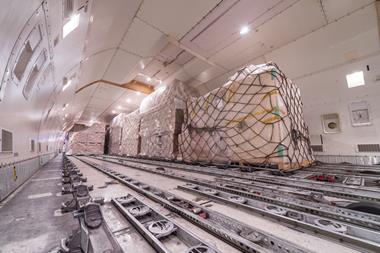Britain leaving the European Union, or Brexit, will have a profound effect on UK-managed supply chains, with more paperwork, a rethink on hub locations, IT system challenges and a need to revisit existing contracts with suppliers and customers.
But there are also opportunities, with Brexit providing the excuse for a totally fresh approach to how supply chains are organised, to make them more efficient.
Those were the topics covered by Tom Woodham, director at business consultants PwC, when he spoke on ‘Navigating global trade in turbulent times’, a seminar organised by SEKO Logistics at Farnborough in the UK.
The half day conference set out to discuss the challenges and opportunities presented by changing times for the British aerospace, aviation, defence and security industries.
A June 2016 referendum voted narrowly in favour of the UK leaving the European Union (EU), and in March this year the British government invoked Article 50 of the EU treaty, triggering two years of complex negotiations with the European Commission in Brussels on the terms and conditions of the UK departure.
In his presentation, Woodham said that UK businesses should be looking at their currency hedges as well as analysing their risks related to raw materials costs.
He stated that for businesses importing raw materials to the UK, costs rose overnight when sterling fell by 20% on news of the UK’s vote to leave the EU.
He added that, depending on the outcome of negotiations, it is expected that there will be a customs border put in place between the UK and the EU. This is likely to lead to extra paperwork for import and export declarations and charges for goods passing both into and out of the UK, as well as taxes, duties, tariffs and import VAT.
Brexit will also mean new data requirements, with IT systems having to handle more complexity in terms of information held, and frequency of data submission, for customs declarations.
Woodham said: “Systems, this is the one that keeps me awake at night after talking to clients and in thinking about what they are going to do, because systems don't happen quickly and before we know it we are going to miss the timeline for all that planning we need to do.”
Woodham then moved onto commercial contracts, and cautioned that UK companies should “take care” with long-term commitments. He said that Brexit will inevitably have an impact on both existing and future supply chain contracts.
This means reviewing existing agreements and to understand how Brexit might affect their viability and then building in flexibility into new contracts, to accommodate uncertainty.
“We sign contracts all the time but what might have been sensible to sign for three, five, eight or ten years may not be the sensible thing right now. We work with long product development cycles, but the Chartered Institute of Procurement and Supply says that 36% of UK purchasing managers are looking at their European supply base and considering whether they should move it back to the UK.
“More interestingly, 46% of European purchasing managers are thinking about stuff they buy from the UK and whether they should move it back to mainland Europe.
“If you are putting a long-term contract in place, make sure that you put in a break [clause], because there is nothing worse than agreeing a contract with something that you legally cannot do later."
Woodham said that the location of supply chain hubs was another pressing issue, and whether a new hub strategy may be appropriate.
“If you think that Frankfurt is the right place to have a hub in mainland Europe, than scout out a site or two, and potentially have a hold on a facility out there. Because, when the decision is made, suddenly everybody wants a hub in Frankfurt and if you have not thought about it and done the due diligence, you will be at a real disadvantage.”
He also made the point that some companies, in the post-Brexit world, will be looking to locate a hub in the UK, especially in a just in time environment when supply chains are “pretty short and don't have much slack in them”.
But it is not all doom and gloom, said Woodham, adding: “It is about having a plan so you can react and move quickly. The companies that do that are the ones that will take advantage of Brexit when it happens.
“Reassess what parts should be made where. We have got global supply chains and global manufacturing footprints. The cost of manufacturing in the UK compared to other places will change. Take a step back and look at it."
Investment in automation, not a UK priority for the past 30 years or more, should be considered seriously as a way of moving production around: “The UK becomes more attractive if your final assembly is here because of lead times and because of cost and because of complexity as Brexit comes in.”
Shippers should ask themselves: Have I got the right supply chain for this post-Brexit world? It is easier to ask that question today, observed Woodham, because managers now have “better data, better visibility and better understanding” of their supply chains.
Companies should also know the individual supply chain costs that add up until you get total amount at the end point.
With that cost model in place, companies can look at different scenarios as Brexit happens and assess what that means for different supply chain flows and costs.
Managers should also “revisit” previous investment decisions: “We have made decisions about our business over the last 15 to 20 years. Brexit is a great opportunity to take a step back and say which of those investment decisions should I revisit? They are usually [decisions] around systems and physical assets, and around automation.”
Woodham concluded: “There will be opportunities as the trading environment changes and so there are opportunities for the people who respond the quickest. It is all about staying nimble and looking at ways of getting ahead.”










